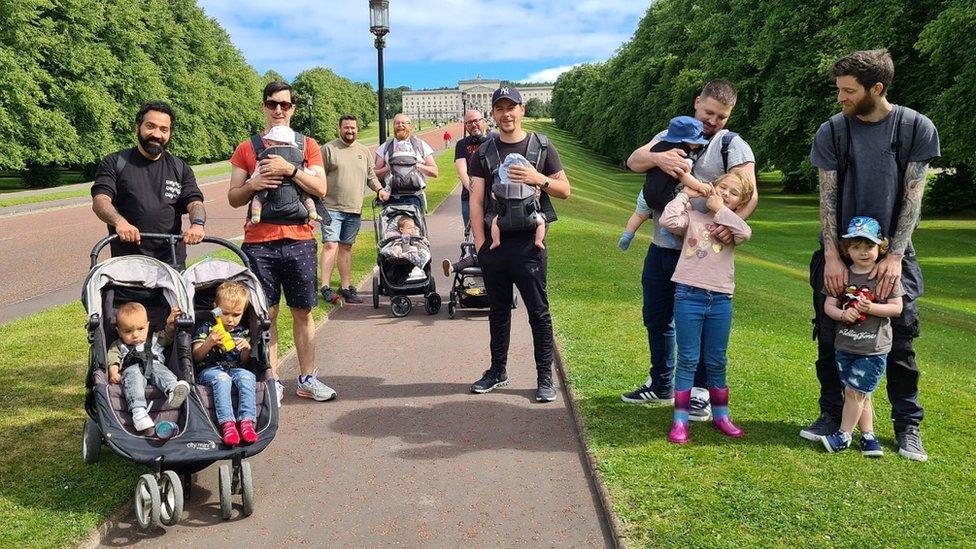Pregnant at 42: The Woodhall Spa mum tackling critical comments
- Published

Lucy Baker was 42 when she became pregnant with her third child
When she announced she was pregnant aged 42, Lucy Baker says she experienced negativity from several quarters - including a midwife. She is now calling on society to rethink how it views pregnancy. BBC News went along to speak with her.
"She asked me for my date of birth," says Lucy, recalling the moment she met her community midwife shortly after finding out she was pregnant with her third child. "I said January 1976 and she gasped. That reaction from her stuck in my mind."
Furthermore, Lucy claims the midwife then scribbled the words "older mum", in capital letters, on her maternity notes.
"You can't forget that kind of stuff," she says. "It was so obvious that she was shocked at my age. It hurts."
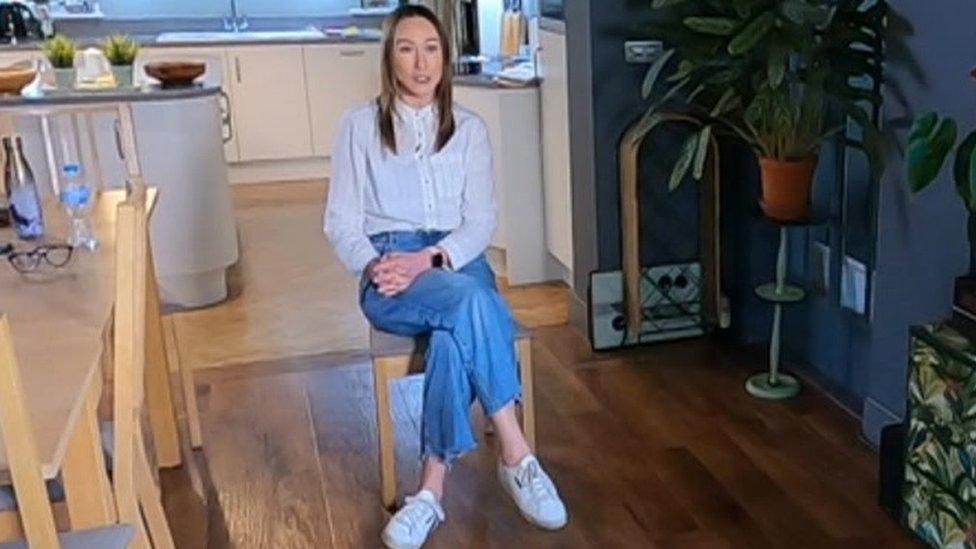
Lucy Baker talks about negativity she faced when she became pregnant at 42
Though her family and closest friends soon warmed to the idea she was expecting another baby, she says it was not long before others less close to her made their views known, fuelling anxiety.
Lucy says: "I have to say, some of the people we knew who were probably not my closest friends but still people I would class as friends, school mums for example, I had quite a lot of negativity from when I shared I was pregnant.
"There were all sorts of comments that I had already probably actually thought of myself but when faced with them from other people stung. It was painful hearing people were judging my pregnancy."
According to Lucy, one mother, on the playground at their children's school, told her, "you'll be 47 when your baby starts school". Another asked her if she "was sure you want to go back down the nappy route?" A mum also pointed out she would "be the oldest mum on the school gates".
Lucy says she laughed off the comments at first but privately, and with time to reflect, dwelt on them.
"I thought, 'what are you doing?'" she says. "I am going to be an old mum. Is that a good thing or a bad thing? So I started questioning my choices."
Lucy, a confidence coach, lives with husband Dan and their three children, now aged three, 10 and 12, in Woodhall Spa, Lincolnshire. But she says she quickly discovered other women across the country - and further afield - who were experiencing similar negativity.
She says many women take exception to what she believes are, at best, careless terms to describe pregnancy.
"The term 'geriatric pregnancy' needs to go," she says. "If you think of the term 'geriatric', one thing comes into your mind - a very elderly person who probably needs a lot of support. But I do not think the term fits motherhood at all."
Lucy says she was never called geriatric during her pregnancy. Instead, as well as "older mum", she also had "advanced maternal age" recorded on her medical notes. However, she says as many as half of those mothers who joined a Facebook group she set up to shine a light on the issue had it written on their notes.
"It's not helpful," she says.
She would later begin a blog called Geriatric Mum - a tongue-in-cheek reference to the unflattering label given to some women over 35.
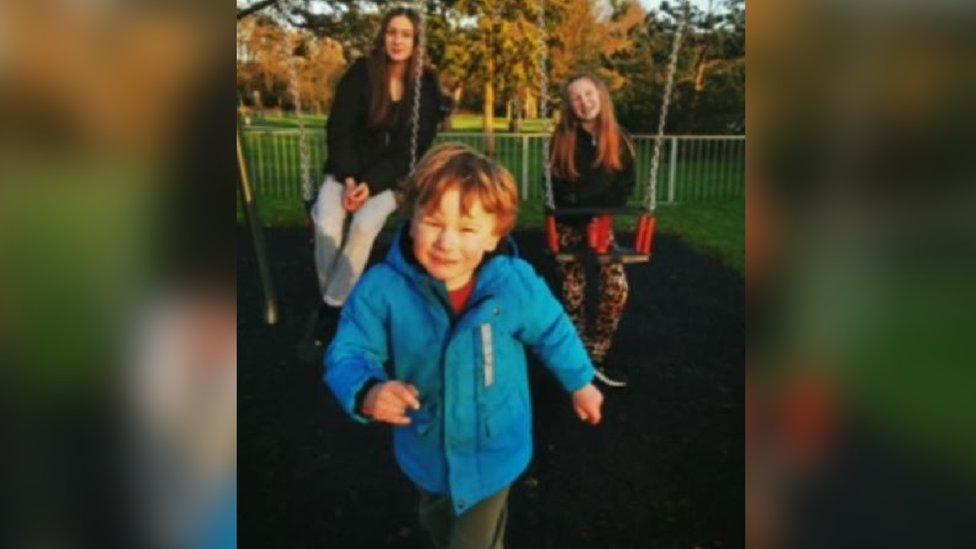
Lucy's three children, aged three, 10 and 12
Despite the judgy comments, Lucy says she "loved every minute" of her final pregnancy. She describes having felt "in tune" with her body throughout.
She explained, like many first-time mums, she was bordering "obsessional", consuming "every book going" when she first became pregnant at 34.
Lucy adds: "My second pregnancy, when I was 37, I felt I had already done it once and I was a little bit more calm about it."
'There to support'
Sally Ashton-May, director for midwifery policy and practice at the Royal College of Midwives, was clear, when approached by the BBC, that maternity professionals were there to support, not judge.
She said: "Women are increasingly having babies later in life. This may be personal choice or for economic reasons, or because their journey to conceive hasn't been straightforward for example. Regardless, midwives, maternity support workers, doctors and their colleagues are there to support them, not to make judgments.
"The most important thing is that women receive the care they need, personalised to them, throughout and after pregnancy. This is why it is so crucial that midwives have the time and resources to spend the time needed for all women, so they get the safest and best possible care."

Follow BBC East Yorkshire and Lincolnshire on Facebook, external, Twitter, external, and Instagram, external. Send your story ideas to yorkslincs.news@bbc.co.uk, external.
Related topics
- Published14 August 2022
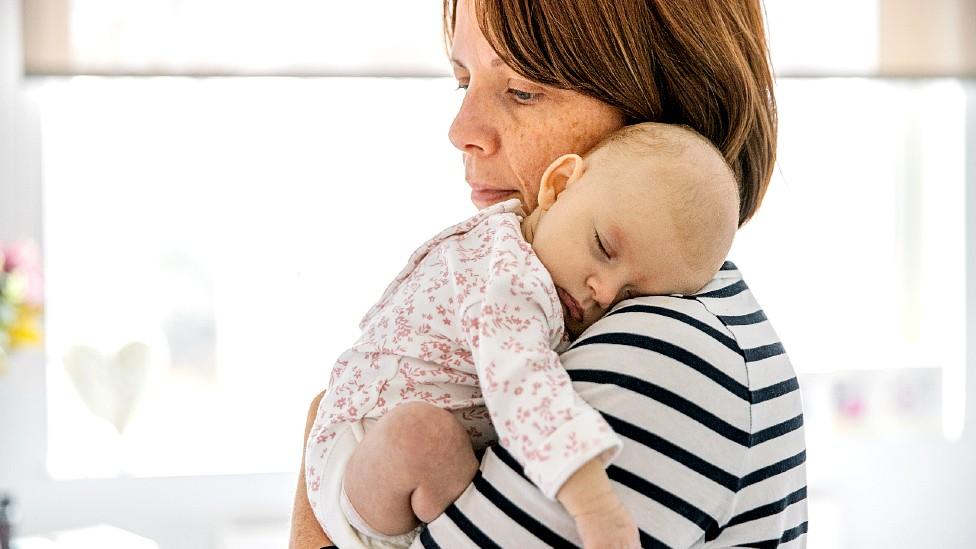
- Published19 May 2021
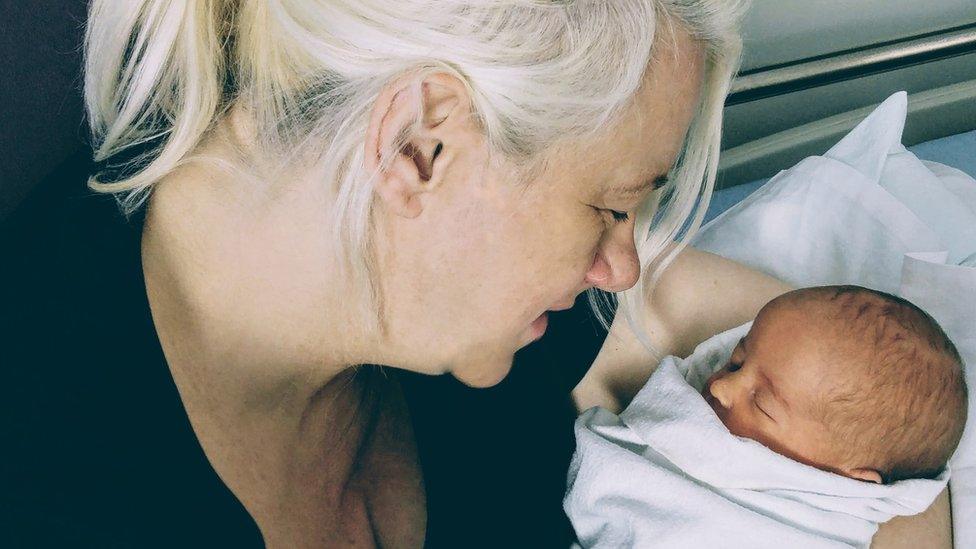
- Published7 August 2022
